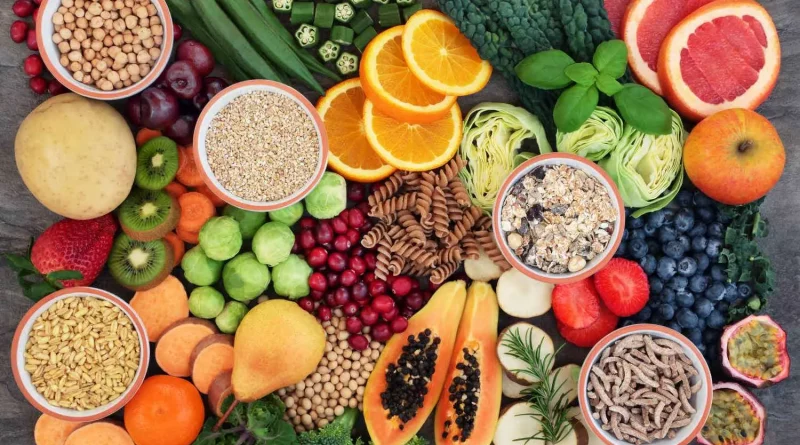Nutritional Approaches for Reducing Cholesterol Levels – Part 3
In Parts 1 and 2, the reasons why you should be concerned about cholesterol and some of the recommended levels of total serum cholesterol were discussed. The things that can affect your cholesterol levels, which of those things you can do something about and those you cannot do anything about; and things to consider in a cholesterol reduction plan were presented. Here in Part 3, nutritional options you can consider for reducing cholesterol levels are presented.
Nutritional Options for Reducing Cholesterol Levels
In general, enjoy a diet rich in vegetables and fruits, and low in saturated fats; including foods such as fat-free or 1% dairy products, lean meats, fish, skinless poultry, whole grain foods, and a daily multivitamin and mineral supplement for overall nutritional support. Limit foods high in cholesterol such as liver and other organ meats, egg yolks, and full-fat dairy products.
By all means, discuss all nutritional options that you are using to reduce your cholesterol levels with your healthcare provider. He or she may determine that diet, physical activity, and weight management are not enough in lowering your cholesterol levels.
Cholesterol-lowering drugs may be prescribed. Even if you begin lifestyle changes and are on drug treatment to lower your cholesterol, you will need to continue your treatment regardless. Your lifestyle changes may help keep the dose of medicine as low as possible and lower your risk in other ways as well, but only you and your doctor can fine-tune this.
Several foods and nutrients can help in moderating cholesterol levels. Here are a few nutritional options to consider and/or discuss with your doctor.
-
- o
Omega-3 and omega-6 essential fatty acids.
- Omega- 3 and omega-6 essential fatty acids (EFAs) can be beneficial for the cardiovascular system. They are precursors of prostaglandins that aid in the reduction of hypertension and cholesterol levels. Omega-3 (linolenic acid or alpha-linolenic acid) essential fatty acids are found in flaxseed oil, walnuts, cold-water fish (salmon, tuna, sardines, halibut, and herring), special eggs from chickens fed a vegetarian diet, and greens such as kale and purslane. Omega-6 is found in high concentrations in corn, soybean, safflower, cottonseed, and sunflower oil.
-
- o
Fiber.
- Soluble fiber binds with bile acids and cholesterol, interfering with the absorption of dietary fat and cholesterol, as well as with the recirculation of cholesterol and bile acids. The fiber takes the cholesterol that is bound to it with it as it leaves the body. Good sources of soluble fiber include oats (particularly oat bran), certain fruits (such as oranges and pears) and vegetables (such as brussels sprouts and carrots), and dried peas and beans.
-
- o
Vitamin C.
- Many researchers believe that an increase in vitamin C consumption may be the reason for the large decline in cardiovascular disease. Oxidation of cholesterol in the blood vessels is caused by free radical damage. Vitamin C keeps LDL cholesterol from oxidizing, helps normalize serum cholesterol levels, and reduces atherosclerosis.
-
- o
Garlic.
- Garlic can reduce total cholesterol and serum triglycerides over time. It also elevates your HDL levels while reducing LDL oxidation. Allicin is a compound that lowers high cholesterol levels and blood pressure. But, it is also responsible for its strong odor. Many people don’t like the strong flavor of garlic so garlic powder in the form of capsules is available. Be aware that garlic reduces blood clotting time, so if you have any surgery planned, discuss it with your doctor and consider discontinuing eating garlic a week before the surgery.
-
- o
Green Tea.
- Green tea can lower cholesterol levels. It contains phytochemicals known as catechins, which lower blood cholesterol and improve fat metabolism. Green tea is also available in an extract form. Studies in Japan indicate that not only green tea, but black tea as well, can lower your rate of lipoprotein oxidation which makes the fats in the blood more likely to be deposited in your arteries.
Copyright 2006. Mary El-Baz. All rights reserved.



